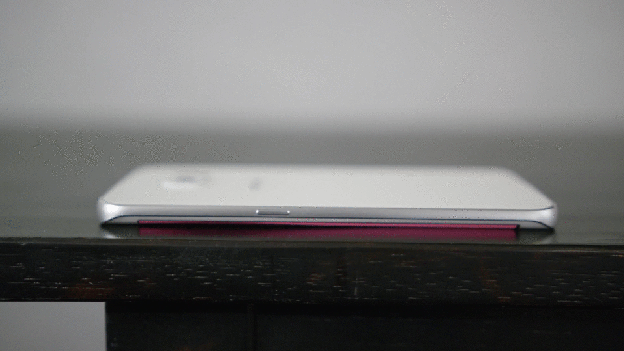It seems like technology constantly finds new ways to notify us of bits of information in our lives. Many phones have a multicolored LED that flashes when notifications sit unread, changing hue to reflect the origin of the notification. Many people also opt for a smartwatch or Fitbit, ensuring that the vibration won’t go by unnoticed. Whether we think of these as satisfying plugs into the world around us or minor annoyances, notifications are slowly integrating into our brain’s dopamine cycle.
Say you’re multitasking a text conversation with a pal and an RCL reading assignment (who would ever do that?!). As you traverse the page of text, how focused is your mind on that assignment? How often do you peak to see whether or not your phone’s LED light has flashed? When this happens to me, I soon realize that a few replies later, I’ve read at an extremely slow pace and probably retained even less.

Whenever a notification pops up, we see it as a response. Humans have a natural tendency to gravitate towards these bits of attention. Each one essentially shoots a tiny rush of dopamine in the brain and since they are so prevalently embedded in our lives, the reward and pleasure cycle corresponding to them is firmly rooted. According to a Univerisity of Chicago Study, email and Facebook addictions are actually harder to beat than alcohol or tobacco ones (Hofmann). Checking those notifications require no effort at all whereas cigarettes or drinks can pose more than just a financial burden. I remember speaking to a couple of teachers in high school who felt uneasy after a prolonged period of time without checking their email. They found it harder to focus on their task at hand when the question of “Has anyone else contacted me since I last logged into Gmail?” plagues the back of their minds. Over their professional careers, their email delivered tasks and opportunities to their work queue. Accomplishing them provided a great deal of satisfaction as they gradually built their experiences and knowledge. However, somewhere along the way, something disrupted this positive mental association. The notifications, one might call them the middlemen, actually stole part of the association so now, part of the rewards are linked with the notifications themselves. Similarly, the intended vision for social media includes nothing but creating meaningful bonds between humans all over the world. However, part of what draws us to it isn’t just the chance to purely interact with others, it’s the little red numbered flag that triggers a powerful dopamine release in the brain. No wonder Facebook loves to notify us of everything; we can’t resist the pleasure derived from KNOWING that we’ve been ‘recognized’ or ‘interacted with’ and come back craving more. Essentially, not only do we seek and crave the information delivered by notifications, we also seek the actual notification itself.
Something that, in design, should help us better interact with those around us shouldn’t also chain us. We need to evaluate the way notifications have shaped our behaviors and productivity, our focus and mentality. When we don’t gain control of the way notifications work in our lives, they gain control of us.
This is a really interesting topic! You made a really nice claim here and supported it with good facts and research, building your ethos. You clearly claimed that our notifications have become a part of our dopamine cycle and then supported it with research that shows that this integration can become an addiction that is more powerful than alcohol or drugs. You also gave a good psychological reason for this notification addiction. You did not leave me questioning your data or ideas, nice work! I think it would be interesting to look at what people are doing about these addictions.
Congrats on blog of the week! This is extremely interesting, but I’ll admit it made me feel kind of scared too. I was not aware of the science behind social media and how human beings react internally to technological outreaches and notifications. You did a great job of captivating the audience and describing a personal scenario. The support you gave all of your claims, such as the lack of financial substance in checking Facebook compared to an alcohol addiction really pulled this whole piece together.
I can definitely relate to the opening part of this article since I get distracted easily when trying to complete my assignments, whether it be by Netflix, social media, or even group chats with my friends. It is interesting to me that the effect that social media has on our brains is comparable to that of drugs, and makes me reevaluate just how much I use my own phone. I definitely agree with the commenter above that certain websites can give you a myopic view of world events or even of pop culture. I use Tumblr a lot, and most of the political content I see comes from liberals, which is not a good or bad thing, but definitely limits my interpretation of an issue when I mostly hear about one overwhelming opinion. Conversely, my Facebook newsfeed is filled with a mixture of conservative and liberal opinions and I find myself interested to see who stands where on a certain issue. But overall, your assertion that we crave attention on social media sites is definitely true.
*Please ignore any grammatical mistakes in that last comment. My keyboard’s being wonky. 😛
It’s strange that seemingly innocuous social media features can have such drastic effects on consumers, and it’s so unpredictable and accidental. I couldn’t believe that social media can be more addicting than some drugs! This reminds me of a study was reading about that suggested personalized news sources (or websites like Pinterest or Tumblr) can actually make us more closed-minded by only showing content by like-minded readers. We truly don’t realize the impact of new technology until its already had a significant effect. Nice work on this blog post